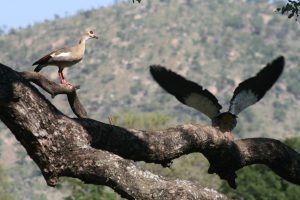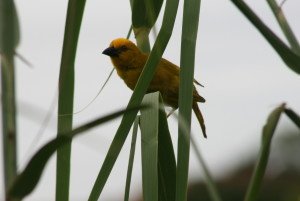Opening of President’s Links very good news for Walvis Bay 4
The opening of The President’s Links, a golf estate of world-class quality, based on the principles of eco-friendly sustainability and durability, is very good news for the community of Walvis Bay as a whole.
Comprised of over 745 luxurious residential units in about 148 hectares, the estate offers comfort, safety and high-class leisure and commercial amenities. Chief among these is Namibia’s first signature golf course, designed by the legendary Peter Matkovich and leading South African golfer Louis Oosthuizen, who has finished the year ranked inside the top-10 of the world golf rankings.
Matkovich and Oosthuizen chose the specific location of the course, on the edge of the Dorob National Park and on the fringes of Walvis Bay town. The distinctive dunes surrounding the course will be an added attraction and The President’s Links are hopeful of attracting thousands of golfing tourists. Aiming to be on the top-100 list of global courses, they are also optimistic that they can attract the Sunshine Tour back to Namibia and possibly even stage a DP World Tour (formerly European Tour) event in the future.
Anyone investing in The President’s Links will automatically contribute to The Living Desert Fund. Twenty percent of every house sold will go into this sustainability fund, which will enable community development initiatives as well as maintaining the golf course and clubhouse.
The President’s Links will undoubtedly boost the local economy, creating jobs and adding to the sense that Walvis Bay is a centre of growth, especially since the construction of the new container terminal at the port which has a capacity of at least 750 000 standard 20-foot equivalent units per annum.
The estate is a big investment in Namibia as a whole and the Walvis Bay community will benefit through the presence of multinational technology retailers such as iStore, a new state-of-the-art hospital, a hotel and casino operated by an international group, and other retailers of global brands such as Starbucks.
In an extremely arid country like Namibia, water conservation is always a priority and The President’s Links will be using electrocoagulation technology to convert water that was formerly effluent exiting the Walvis Bay municipality into an odourless source of irrigation water for use out on the golf course. The municipality has granted the estate three million litres a day of water that is currently not fit for human consumption and cannot be purified to potable drinking water. All water not used on the estate will then be sent back to the surrounding community for their use.
The President’s Links is complying fully with the Edge (Excellence in Design for Greater Efficiencies) Certification system of the International Finance Corporation. Edge certification gives owners the assurance that their homes are built to be resource efficient. By focusing on energy and water saving initiatives, as well as ensuring the maximum use of raw materials in their most natural state, the estate has made a minimum of 20% savings across the board.
For the non-golfers, there will be plenty of other amenities for the amusement of residents, including pet-friendly recreational parks, a sports education centre, restaurants and coffee shops, gym, bowling alley, swimming pool, tennis courts, running and cycling tracks.
The President’s Links offer the ultimate in style and luxury and the ideal opportunity to live, work and retire in Walvis Bay. Investing in this eco-friendly, sustainable and yet modern and sophisticated estate includes free golf membership.
Set in the beauty of nature in its raw form, the President’s Links mixed development offers spacious living and incredible amenities.


